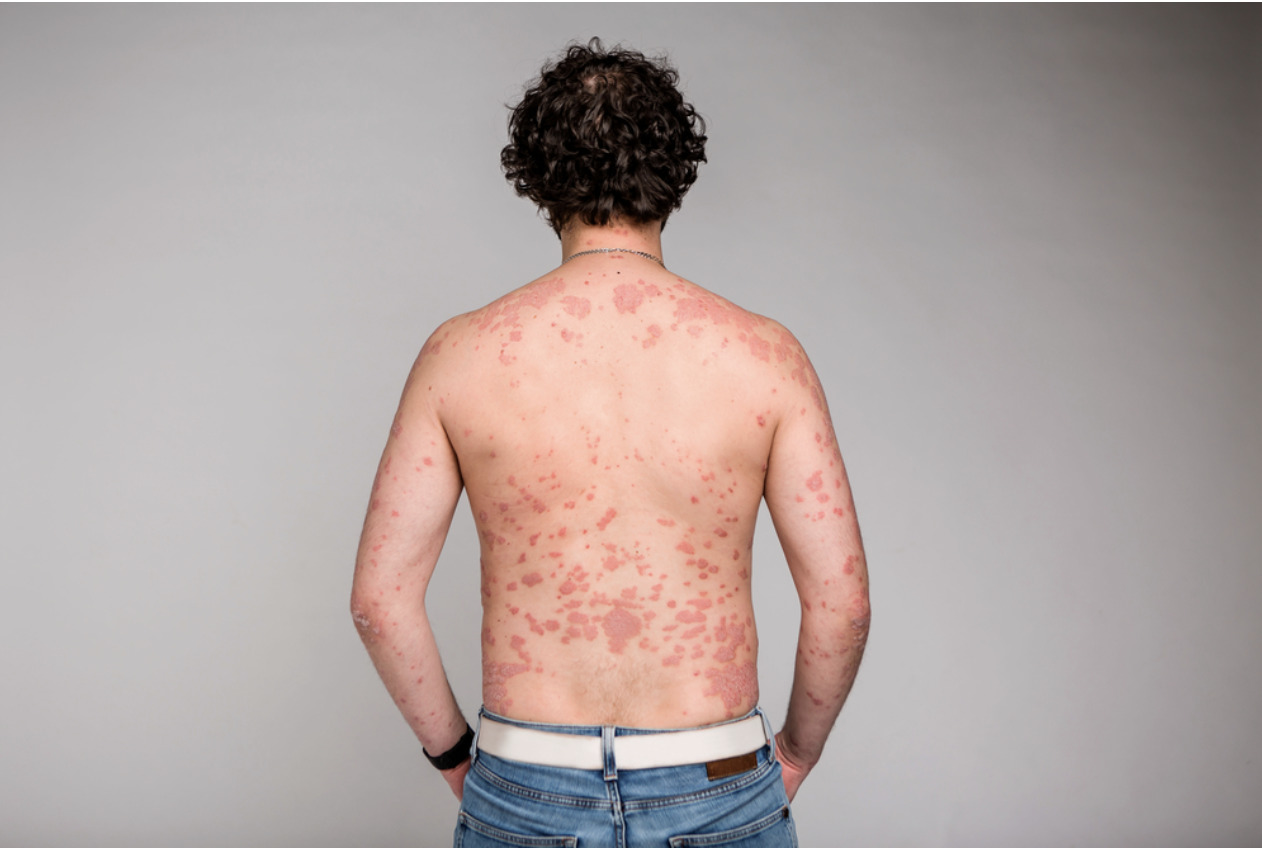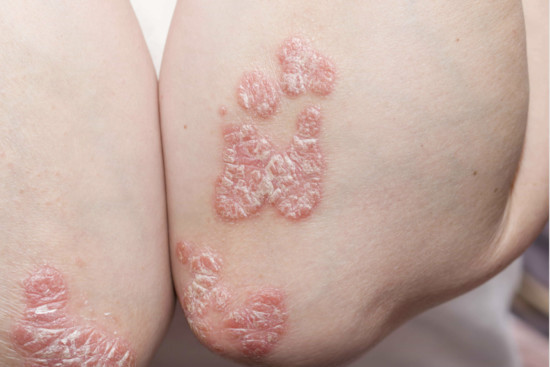Calls for Ukraine
Calls for Europe
Calls for USA

Psoriasis is a chronic autoimmune disease that most often affects the skin and manifests itself in the form of scaly and often itchy spotted areas. It occurs more often in places of skin folds. Despite the fact that no specific genes responsible for its development have been identified, it is believed that psoriasis has a genetic predisposition. People aged 18-35 are most susceptible to this disease. About 3-5% (according to some data up to 10%) suffer from psoriasis, women and men face it equally often, but in women, clinical manifestations may appear on average at an earlier age.
Psoriasis is divided into the following types according to the localization and forms of skin lesions (for this disease, this classification is mixed):
In addition, there is a special form of psoriasis — psoriatic arthropathy, in which the joints are damaged, not the skin.
Psoriasis refers to disorders of the immune system. The mechanism of development of this pathology has not yet been fully studied, but at the moment the main clinical opinion on this issue is that the main factor influencing the
development of psoriasis is genetic, and not the disease itself is inherited, but a predisposition to it. In patients with a genetic predisposition, the occurrence of this pathology or the absence of clinical manifestations depends on the patient`s state of health and interaction with risk factors throughout life.
Psoriasis risk factors are called triggers, they include:
Symptoms can vary greatly, but they usually include:

Since at the moment there is no precise understanding of the pathogenesis (the pathological process that occurs when the disease occurs), the prevention of psoriasis is to avoid and minimize interaction with risk factors. This is especially
true for people with a complicated family history.
For effective prevention, it is important not to stay in the open sun for too long (especially in the summer from 12 to 16), avoid stress, a large amount of fatty and spicy food, do not go through too aggressive cosmetic measures for the skin. It is also important to control a healthy weight, eat a balanced diet and avoid hypothermia.
In order to confirm or refute the diagnosis of psoriasis, the patient should consult a dermatologist. Diagnosis is simple, but it takes place in several stages.
There is no cure for psoriasis at the moment, and treatment is aimed at reducing symptoms such as pain and inflammation, as well as at countering the spread and generalization of the process. Combination therapy is prescribed, including topical creams, oral medications and injections.
Effective in the treatment of drugs of such groups as:
Existing methods of treatment require the use of a large number of drugs and serious restrictions and lifestyle changes, if possible, to ensure a fairly stable remission, but without a chance of a complete cure. Therefore, the search for new methods of treatment was actively underway, and stem cell treatment has been recognized as one of the most promising in recent years.
Mesenchymal stem cells are used to treat psoriasis. These are stem cells that are secreted by bone marrow, cartilage and adipose tissue. Considering that the isolation of stem cells from the bone marrow is an extremely complex process, stem cells for the treatment of psoriasis are usually isolated from the adipose tissue of the patient himself. In rare cases, when patients are older than 60-65 years, the isolation of stem cells from their own adipose tissue is impractical, and in this case patients should receive donor stem cells. These cells are injected into the patient`s
body in the form of injections into the skin close to the affected area, intravenous injections or a combination of these methods. Stem cells, entering the bloodstream, differentiate into healthy skin and joint cells. Also, stem cells produce biologically active substances that positively affect the activity of the immune system. Thus, the number of peeling cells and affected areas of the skin is significantly reduced.
The number of stem cells required for treatment in one injection depends on the state of the body and the severity of the disease.
Recognized experts in this area are Dr. Kovalchuk and Dr. Badyin.
For more detailed information on the treatment of myocardial infarction with stem cells, you can ask for a free consultation with the MedTour coordinator doctor.
1. Does alcohol consumption and smoking affect the symptoms and development of psoriasis?
Yes, both of these factors have a negative impact, so it is better for patients with risk factors to limit them, and for patients in the active stage of the disease to exclude them altogether.
2. What is the reason for seasonality in psoriasis?
Not all patients have psoriasis seasonally. There are patients whose psoriasis worsens in the summer under the influence of sunlight and vice versa — there are patients for whom the provoking factor is cold. In this case, it is necessary to know about your features and minimize the effect of provoking factors on the skin.
3. When is the effect of using stem cells in psoriasis noted?
This happens individually and depends on many factors, but most often the first noticeable effect appears after 1.5-2 months.
Please rate the work of MedTour
